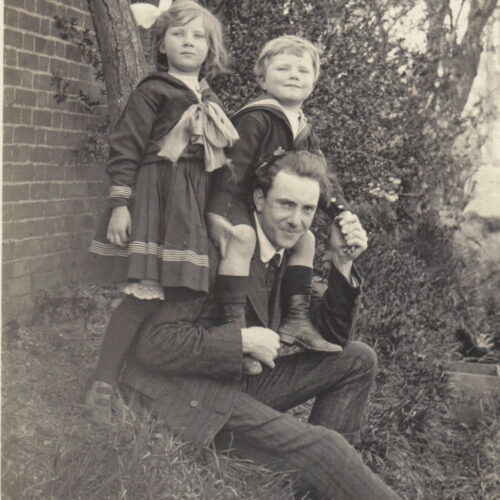

As well as being one of the most distinguished musicians of his time, he was, like Sir Hubert Parry before him, a notable contributor to humanistic thought, particularly in his views on the synthesis of a rational approach and emotional expression.
An obituary for Charles Kennedy Scott, first published in Humanist News, 1965.
By Michael Pope, who knew him both as a musician and as a friend.
Music and Humanism, the first link between which was forged in the madrigal, both lost an outstanding exponent by the death of Charles Kennedy Scott on July 2. As well as being one of the most distinguished musicians of his time, he was, like Sir Hubert Parry before him, a notable contributor to humanistic thought, particularly in his views on the synthesis of a rational approach and emotional expression.
His mind was turned to the selection and performance of choral music which combined the expression of the highest and deepest emotions with literary texts which—so far as was possible—excluded concepts that ran counter to rational conviction.
Charles Kennedy Scott was born at Romsey on November 16, 1876. He was educated at King Edward VI School, Southampton, and the Conservatoire de Musique in Brussels. In 1904 he formed the Oriana Madrigal Society and shortly afterwards his editions of madrigals and similar music began to be published in the Euterpe Edition. Just after 1911 Dr. Stanton Coit asked for his services in connection with the West London Ethical Society and Scott entered upon an association for which he was ideally suited. His mind was turned to the selection and performance of choral music which combined the expression of the highest and deepest emotions with literary texts which—so far as was possible—excluded concepts that ran counter to rational conviction. The fruit of such thinking appeared in 1913, in a publication compiled and edited by Coit, with the music edited by Scott. In the Musical Editor’s Introduction, having named Swinburne and Whitman as expressing the ‘new spirit’ through their poetry he refers to the music of Rutland Boughton, and to the desire of the musician for work along new lines of social service.
…having named Swinburne and Whitman as expressing the ‘new spirit’ through their poetry he refers to the music of Rutland Boughton, and to the desire of the musician for work along new lines of social service.
He now became associated with the newly-founded Glastonbury Festival and it was there that he conducted the first performance of Boughton’s opera, ‘The Immortal Hour’, which was produced in August 1914. The following year Boughton persuaded him to undertake a seeing of ‘Everyman’. He began the work in June 1916 and completed it in October 1917. This chamber opera, which was published in 1936, remains Scott’s major achievement in the field of composition.
In 1913-14 the Oriana Madrigal Society had taken part in Balfour Gardiner’s series of concerts of British music, and it was Gardiner who suggested that Scott should for a large choir to undertake the Choral works in the programmes of the Philharmonic Society. The Philharmonic Choir, of three hundred voices, was formed in 1919 and seven years later Scott founded the Bach Cantata Club, with a choir of about thirty and a small orchestra of leading instrumentalists.
In the following decade Scott appeared as a teacher at Trinity College of Music, and as an author with an important book on Madrigal Singing and a comprehensive work on Word and Tone. His last published book, The Fundamentals of Singing, appeared in 1954.
As a humanist his views sprang from an open-minded, but never-ending search for truth.
In 1963, after he had been compelled to give up the Oriana for reasons of health, he turned his attention to the recording of poetry, and in particular to the Sonnets of Shakespeare, with a resulting standard which certainly reaches, and often surpasses, that achieved by professional actors. His last public appearance was in February of this year when he spoke to the West London Society on ‘The Philosophical Sonnets of Shakespeare’.
As a conductor, he directed performances whose quality set a standard which will be an inspiration for future generations. As a man, the warmth of his friendship, the quality of his encouragement, and the depth of his understanding made him a ‘Very true friend indeed’. As a humanist his views sprang from an open-minded, but never-ending search for truth. If scepticism was for him the salt of life, it went hand in hand with an effort not to lose what was still valid in existing systems. His dislike of any attitude which seemed cocksure was dictated by the realization that a gap must be left for that which is still unknown. His acceptance of a rational approach was allied with an intense awareness of the value of emotional power. Over all this, he had a supreme sense of the wonder and mystery of life. Of no man could it be more truly said that we shall not see his like again.
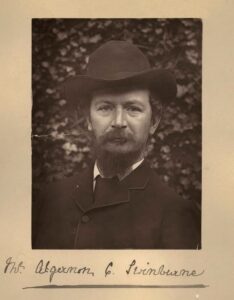
No poet since Shelley sings more loftily or with more fiery passion or with finer thought than Swinburne when he […]
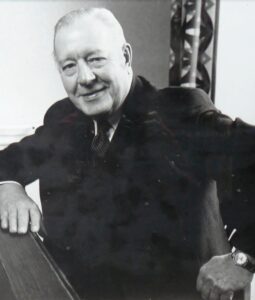
Humanism is less concerned with what to believe than with how to live. The meaning it gives to life lies […]
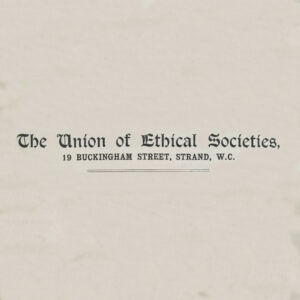
The Union of Ethical Societies (now Humanists UK) was formed in 1896, joining together existing ethical societies for fellowship and […]
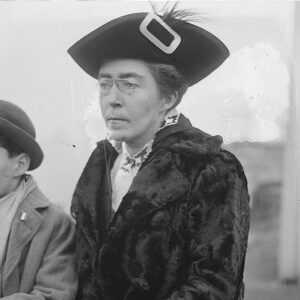
Hanna Sheehy-Skeffington was an activist, feminist, and humanist, who founded the Irish Women’s Franchise League, and was described by the […]